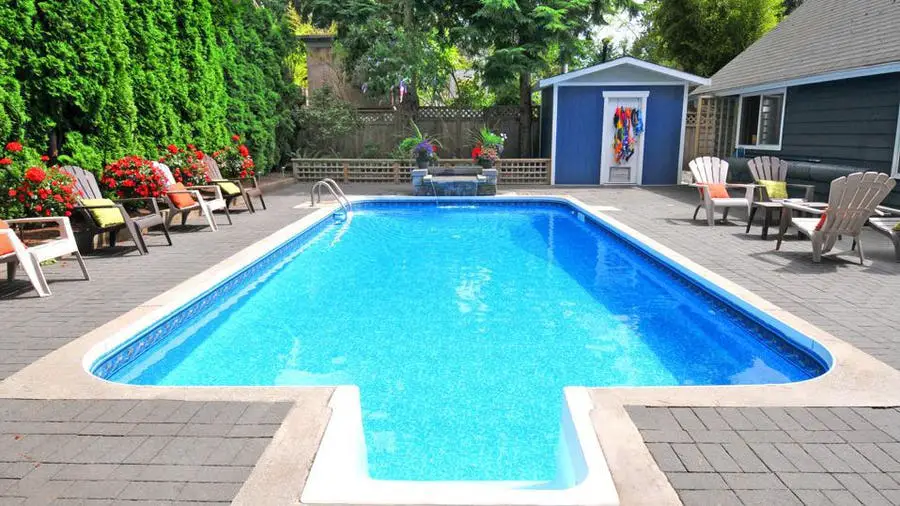Having a pool in your backyard is a dream for many homeowners. Not only does it provide a perfect place to relax and cool off during hot summer days, but it also adds aesthetic value to your property. However, before diving into building a pool, it’s essential to consider the cost implications involved. In this article, we’ll break down the various factors that can influence the cost of a pool, helping you make an informed decision.
Factors Affecting Pool Costs
The cost of building a pool can vary significantly based on several factors:
| Factor | Description |
|---|---|
| Pool Type | The type of pool you choose, such as concrete, vinyl, or fiberglass, will impact the overall cost. |
| Size | The size of your pool plays a significant role in determining its cost. Larger pools require more materials and labor. |
| Extras | Additional features like waterfalls, fountains, lighting, diving boards, or slides can increase the overall cost. |
| Materials | The materials used for the pool’s construction, including decking, tiles, and finishes, will affect the price. |
| Location | The location of your property can influence the cost due to factors like soil quality, accessibility, and local building codes. |
| Accessories | Pool accessories like pumps, filters, and covers also need to be considered in the overall budget. |
Average Pool Costs
It’s important to note that pool costs can vary significantly depending on your specific requirements. However, we can provide some average estimates to give you a rough idea:
- Basic Inground Pools: These can range anywhere from $20,000 to $50,000, excluding any additional features or accessories.
- Luxury Inground Pools: If you’re looking for a more extravagant design with premium finishes and customizations, the cost can exceed $100,000.
- Above-Ground Pools: These are generally more affordable, with prices ranging from $5,000 to $15,000, depending on the size and materials used.
- Infinity Pools: These stunning pools, often seen in luxurious resorts, can cost upwards of $200,000 due to their intricate design and engineering.

Credit: homeguide.com
Additional Cost Considerations
When budgeting for a pool, it’s vital to consider additional costs that are not directly related to the construction:
- Maintenance: Pools require regular maintenance, including cleaning, water treatment, and equipment servicing. These ongoing costs should be factored into your budget.
- Permits and Insurance: Depending on your location, you may require permits for pool construction. Additionally, pool insurance is advisable to protect your investment.
- Landscaping and Hardscaping: The area surrounding your pool may need landscaping and hardscaping to complete the overall aesthetic. These costs should be considered.
- Heating and Energy: If you plan on heating your pool or using additional energy-consuming features, such as spa jets, keep in mind the impact it may have on your utility bills.

Credit: wahoopools.com
Conclusion
Building a pool is a significant investment that can greatly enhance your property’s appeal and provide countless hours of enjoyment. However, it’s crucial to understand the various factors that can influence the cost. By considering factors such as pool type, size, extras, materials, location, and accessories, you can create a more accurate budget. Remember to also factor in additional costs like maintenance, permits, landscaping, and energy usage. With careful planning and consideration, you can make your pool dream a reality.





